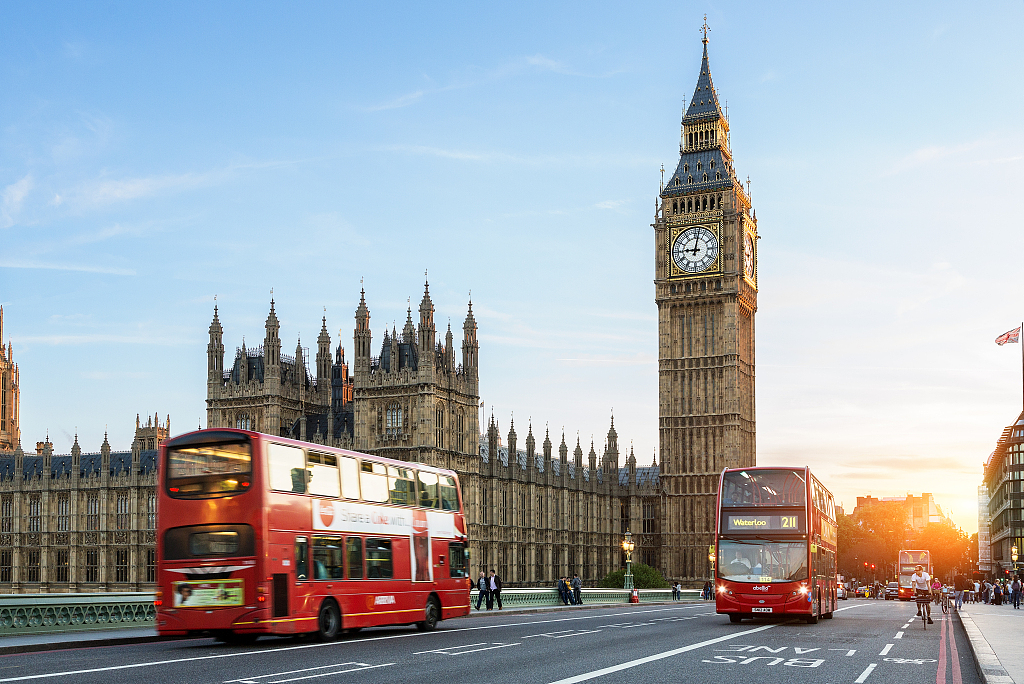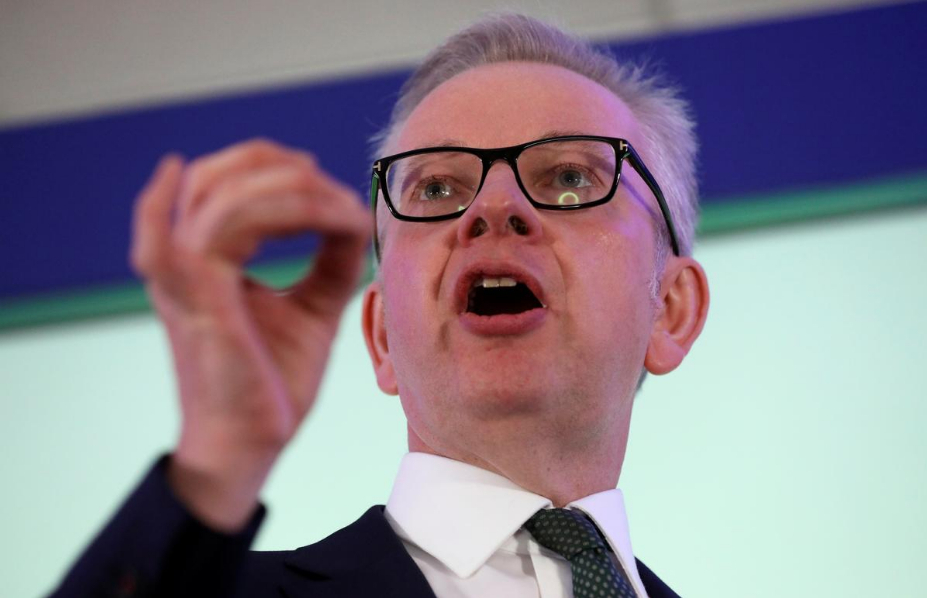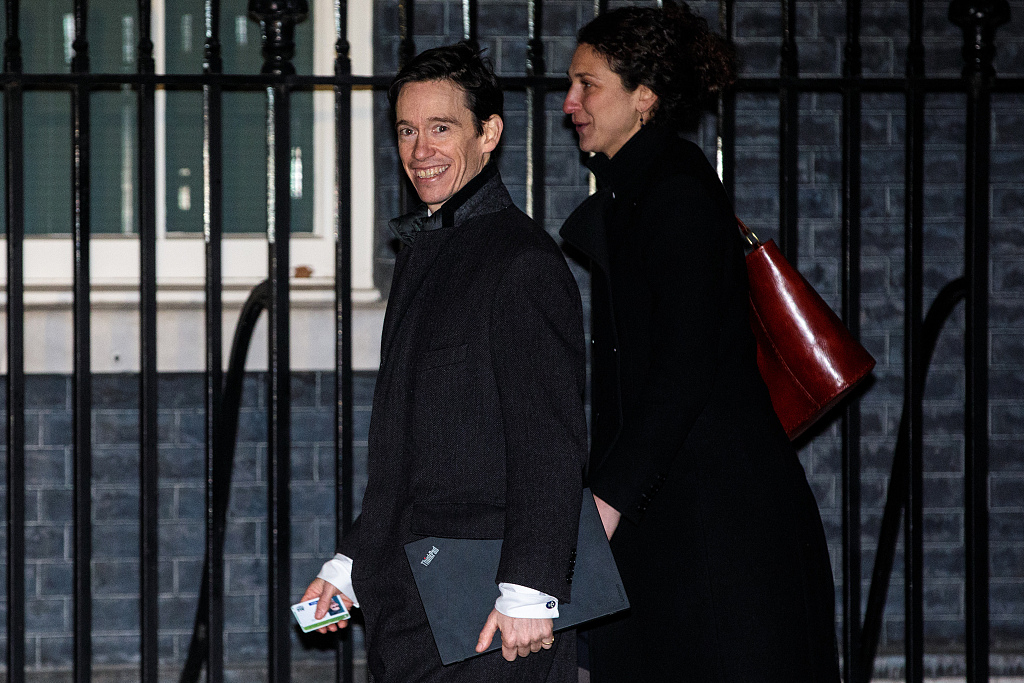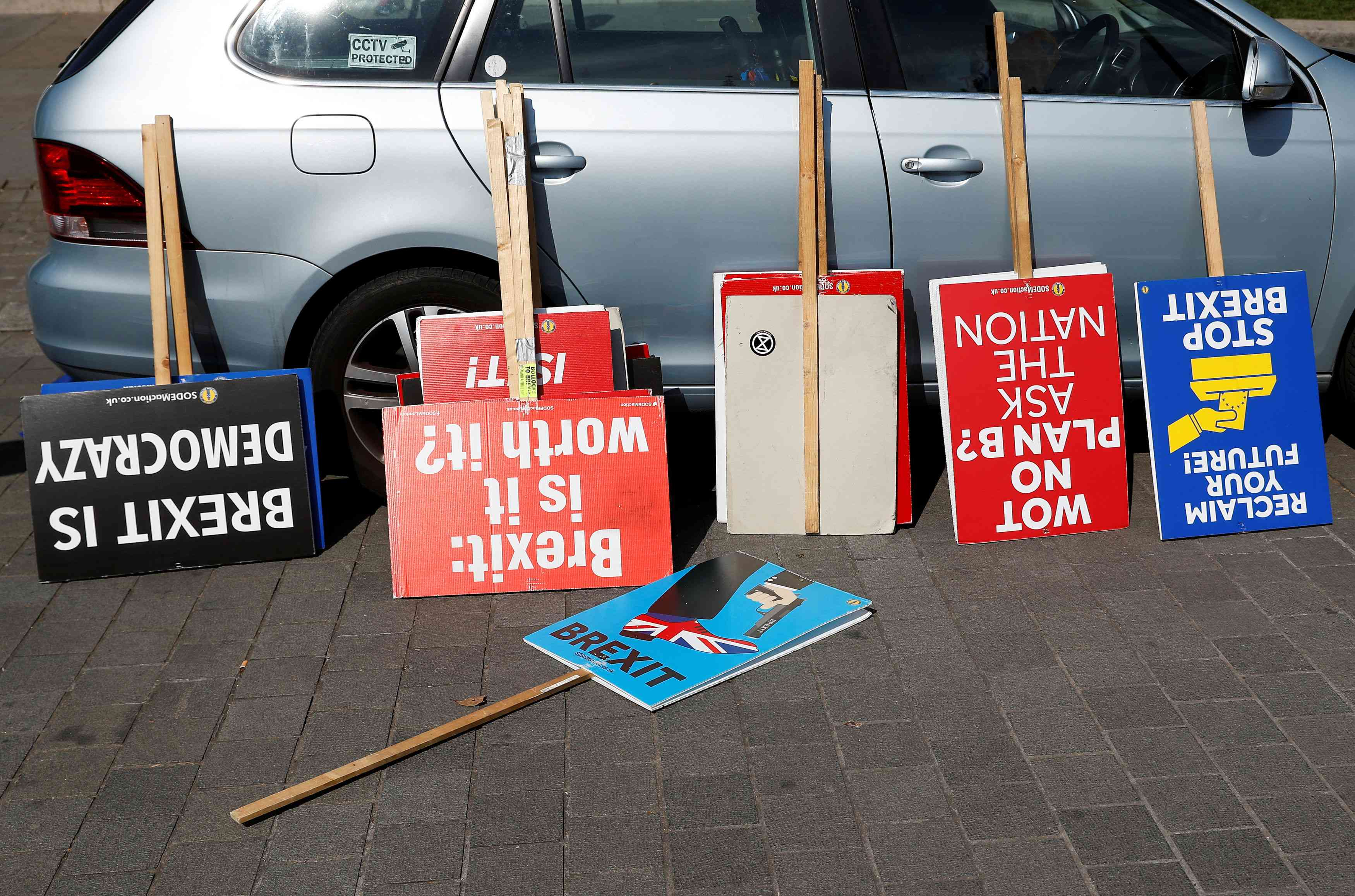

Editor's Note: Chris Deacon is a postgraduate researcher in politics and international relations at the University of London and previously worked as an international commercial lawyer. The article reflects the author's opinion, and not necessarily the views of CGTN.
Following Theresa May’s official departure as leader of the UK’s governing Conservative Party, the contest to select the next leader is now fully underway, with the launch of all candidates’ campaigns occurring this week.
It is widely assumed that Boris Johnson will win. The former foreign secretary, and prominent Brexit supporter, is immensely popular among rank-and-file members of the Conservative Party. To do this, he needs to first make it into the final two candidates (voted for by Conservative MPs), before the membership is allowed to vote.

Prime Minister Theresa May and Foreign Secretary Boris Johnson arrive for the ceremonial welcome for Colombia's former President Juan Manuel Santos at Horse Guards Parade, London, November 1, 2016. /Reuters Photo
Given Johnson also appears to be polling highest among his fellow MPs, his victory appears very likely. However, the Conservative Party’s leadership contests are known often not to follow expectations – the favorite candidate has often been defeated in the past and, therefore, it would be a mistake to focus only on Johnson.
Also in contention – and much more amenable to more moderate and Conservative MPs – is Jeremy Hunt, the current foreign secretary and former health minister. He has a much better reputation as a statesman than Johnson, but given he campaigned against Brexit in the 2016 referendum, it seems unlikely that the overwhelmingly Eurosceptic party membership will vote for him.
Other Brexit supporters in contention are Andrea Leadsom and Michael Gove. Of the two, Leadsom is further to the right of the party, and so – like Johnson – should go down well with members. Gove is more measured, although alienated many supporters when he stabbed Johnson in the back during the last leadership contest, won by Theresa May.

Britain's Environment Secretary Michael Gove speaks at the launch of his campaign for the Conservative Party leadership, in London, Britain, June 10, 2019. /Reuters Photo
There is one outsider, however, who has generated a huge amount of publicity and good will in the short period he has been campaigning: Rory Stewart. Stewart was recently promoted to be the minister in charge of international development, and before that held minor posts in the government.
His career before becoming an MP, however, is illustrious and impressive. While studying at Oxford, Stewart acted as private tutor for Princes William and Harry. He then joined the Foreign Office, where he worked in various locations, including Indonesia and Montenegro. It is rumored that, during this time, he also worked for the British secret service – as has his father.
In the aftermath of the Iraq War, Stewart went on to act as administrator of a region of the country, before eventually leaving his role as a civil servant and going to teach at Harvard University. Most of this occurred before Stewart was even in his early 30s – an extraordinarily impressive CV.

Rory Stewart arrives for a drinks reception at 10 Downing Street in London, England. January 07, 2019 /VCG Photo
Outside of his career, Stewart is also an author. His first book recounts a solo 32-day walk that he took across Afghanistan in 2002, which has received rave reviews. This would be an impressive feat in any circumstances, but to have walked alone across Afghanistan during that period is quite remarkable.
More recently, Stewart has shown himself as a highly able MP and minister. But it is his recent campaigning that has really thrust him into the spotlight, with him even featuring on American cable television.
Stewart’s approach has been novel to say the least. He has embraced the power of social media by roaming around the country, announcing via Twitter that he is in a certain location and inviting members of the public to come to speak to him and debate policy. These encounters are recorded and uploaded later, or in some cases even streamed live.

Anti-Brexit protesters' signs are leaned against a car outside the Houses of Parliament in London, Britain, May 23, 2019. /Reuters Photo
Most politicians would lack the confidence to expose themselves in such a way, but Stewart clearly feels he has nothing to hide. He relishes being among people and actually listening to their ideas. There cannot be many better qualities to have in a political leader.
Despite being relatively unknown among the general public, these antics have put him front-and-center of the campaign and resulted in genuine popularity. Some surveys have even ranked him in first place, ahead of Johnson, when the public are asked who the best prime minister would be.
The sad reality for Stewart and his supporters, however, is that it is not the public at large who will decide who becomes the next Conservative leader and, therefore, prime minister. It will only be roughly 150,000 members of the party. Given his straight-talking, for example, on the impossibility of a no-deal Brexit, Stewart stands little chance at winning over this narrow electorate.
If a miracle happens, Conservative MPs and party members might vote for the candidate who is most popular across the whole country. But the chances of this sort of foresight dawning upon them, sadly, seems small. In this way, Britain may be about to miss out on one of the best prime ministers it could hope for.
(If you want to contribute and have specific expertise, please contact us at opinions@cgtn.com.)

Copyright © 2018 CGTN. Beijing ICP prepared NO.16065310-3
Copyright © 2018 CGTN. Beijing ICP prepared NO.16065310-3